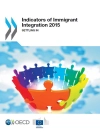This book focuses on the cultural challenges often faced by international managers and global business operations. In the last few decades, the world has witnessed unprecedented economic turmoil, volatility, and uncertainty which has altered the political dynamics and sociocultural landscape around the globe and directly or indirectly affected international business activities. Further, new markets have opened up in every corner of the world. Brazil, Russia, India, and China, collectively known as BRIC, are strong emerging economic powers similar to the once captivated ‘Asian Tigers’ such as Hong Kong, Singapore, South Korea and Taiwan which rose decades ago. The emergence of these markets has heightened both the opportunities and challenges for national and international businesses. Multinational firms are gradually expanding in the emerging markets and are expected to become giants in the foreseeable future. As they expand, they also need to assume increasing social responsibilities in a global context, and it is important that the ways business is conducted are developed accordingly. As such, understanding the practices, challenges, and strategies that companies have developed is critical to global firm’s success. Against this background, the book highlights the importance of understanding cultural elements when managing multicultural human behaviors in the workplace. Based on conceptual and empirical work, it pushes the frontiers of knowledge of this emerging field in international business setup and management, and explores how globalization is changing the way in which multinational firms formulate their business strategies.
“The editors of this text bring a wealth of expertise in this area, as is evidenced by their choice of topics, and the strength of the experts they have invited to contribute to the book. The combined chapters provide both strategic guidance as well as a focus on operational concerns that may arise in international business including expatriation and human resource mobility. The authors not only correctly identify the oncoming challenges, but also present evidence regarding the likely solutions such as culture and innovation and global change management. Overall, this book will be a tremendous resource for scholars in the international business field, but I believe the audience will be much wider. The international team of editors and authors bring a wide range of perspective as well as real-world contextual knowledge that will be useful for scholars and practitioners who seek to leverage culture and human capital to advance international business and drive the global economy. I applaud the editors for their vision and leadership in guiding us through one of the most challenging contemporary research areas and through one of the most pressing challenges of our day.” – Dr. Richard L. Griffith , Executive Director, Institute for Cross Cultural Management, Florida Institute of Technology, Melbourne, FL, USATable des matières
Chapter 1: Introduction: The Past, at Present and for Tomorrow.- Chapter 2: Cultural Challenges and Promises of Global Business.- Chapter 3: Practices, Norms, and Diversity in Multinational Corporations.- Chapter 4: Challenges and Issues of Global Business.- Chapter 5: Implementing Strategies for Global Businesses.
A propos de l’auteur
Norhayati Zakaria, is an Associate Professor, and is currently attached to the Faculty of Business and Management at University of Wollongong in Dubai, United Arab of Emirates. Dr. Zakaria obtained her Ph.D. in Information Science and Technology and MPhil. in Information Transfer at Syracuse University and MSc. Management at Rensselaer Polytechnic Institute, Troy, NY. Her educational training spans interdisciplinary fields of cross-cultural management, international human resource management, and information science. With her international education and experience as an expatriate, she attuned to the culturally related behaviors of global workforces. With her research program she is exploring key questions of how to manage the impact of culture on global talents, both face to face and virtually, and how to inculcate cultural intelligence among them. She is also engaged in research to explore a new way business is conducted via the digital platform andhow such business models shape the culture of the consumerism. She has written more than 100 publications including journal articles, books, book chapters and conference proceedings and is widely cited by scholars in the field of international business and management. Her latest book is entitled ‘Culture Matters: Decision Making in Global Virtual Teams’ published by CRC Imprint, Taylor & Francis Group. She is writing her 2nd book on ‘Culturally-Oriented challenges for Self-Initiated Expatriates in Multinational Organizations: Emerging Research and Opportunities’ by IGI Global.
Asmat-Nizam Abdul-Talib is an Associate Professor teaching international business and international marketing at the Universiti Utara Malaysia and has recently become attached to the OYA Graduate School of Business. He received his Ph D in International Marketing from Aston Business School, Aston University, UK; MBA in International Business from Cardiff University, UK; and a Bachelor’s degree in Business and Economics from Concordia University, Canada. He is also the recipient of Universiti Utara Malaysia Outstanding Research Award and Universiti Utara Malaysia Most Promising Researcher Award. His research interests lie primarily in international marketing and strategic marketing, especially in export market intelligence, and the use of export market intelligence in firms’ export decision processes. He has also been appointed Associate Professor of International Business in Tashkent State University, Uzbakistan, a research fellow at the Honda Foundation, Japan, and Faculty Associate at Aston Business School, UK, teaching international marketing and international business.
Andrea Amelinckx is the Director of the International Programs Office, the Chair of the International Management Area and the Director of the First Nations Governance Program at the University of Lethbridge, Facultyof Management in Lethbridge, Alberta, Canada. Her research interests are in the areas of cross-cultural management, indigenous studies and virtual global team relations. She currently teaches courses such as, Cross-cultural Study in Malaysia, Cross-cultural Management Practices and Canadian Culture and Management. Currently, she is working with an interdisciplinary team on First Nations, community and corporate relations and involvement in the natural resource sector.












